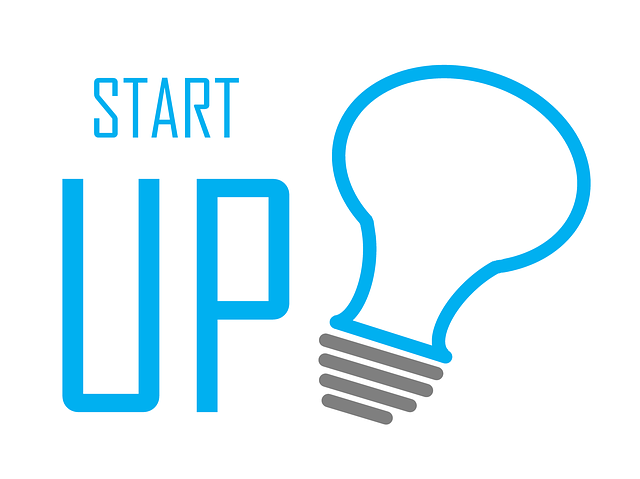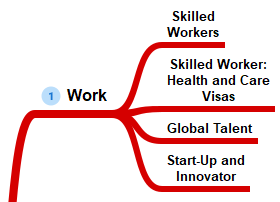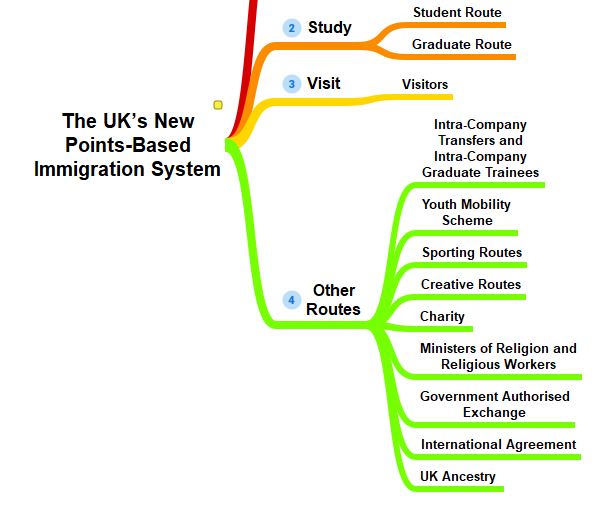The Difference between the Start-up and Innovator UK Immigration Routes
The Start-up and Innovator Immigration Routes were born in March 2019 in a new beautiful home called Appendix W. Where ‘W’ stands for ‘workers’.
The parents of the Start-up and the Innovator Immigration categories are Tier 1 (Graduate) Entrepreneur and Tier 1 Entrepreneur. These routes are no longer accepting new applicants and will become history in less than five years.
As with all children, parents always try to make their children a better version of themselves. This is precisely what the Home Office aimed to achieve with the Start-up and Innovator routes.
In this article I’ll explain the difference between the two routes, helping you decided which one is the most suitable for you.
Who is the Start-up Immigration Category For?

The Start-up is for entrepreneurs wishing to establish a business in the UK for the first time. You’ll need to prove you have an innovative, viable and scalable business idea.
According to the Home Office guidance, you can prove the innovativeness of your idea by providing a genuine, original business plan that meets new or existing market needs and/or creates a competitive advantage.
With regards to viability, you’ll meet this requirement if you can prove that you either have or are in the process of actively developing the necessary skills, knowledge, experience and market awareness to successfully run the business.
Your business idea will be scalable is you can show that there is evidence of 1. structured planning and 2. of potential for job creation and 3. growth into national markets.
Endorsements
The organisation, which will evaluate your business idea, is called an endorsing body. As with Tier 2 and Tier 4 sponsors, the endorsing bodies will need to be registered with the Home Office. Once registered, the endorsing bodies go on a special Home Office list. Endorsing bodies for Start-up and Innovator categories can be the same. However, you should not automatically assume that they are and always check before applying.
Endorsing Bodies are either Higher Education Providers (HEP) or business organisations. These organisations will need to have a track record of supporting UK based entrepreneurs and the support of a Government Department.
Endorsing Bodies are not only assessing the applications to ensure that the business plan is innovative, viable and scalable. They will also be responsible for monitoring the progress of the businesses they endorse. Their roles and responsibilities are similar to the Tier 2, Tier 4 and Tier 5 sponsors.
The Start-up entrepreneurs will need to show that they speak English at the level of at least B1 or above. It is unless they are from the majority English speaking country or have a UK Bachelor degree or above.
Who is the Innovator Immigration Category For?

The Innovator category is for more seasoned types of entrepreneurs. Not only should these entrepreneurs have an innovative, viable and scalable business idea, but they also have to have at least £50,000 funding.
As, with the Start-up Immigration category, the Innovator will need to get the Endorsing body’s support in the form of an endorsement letter.
The ability to speak English should be at the same level as for the Start-up Entrepreneurs: either B1 or from the majority English speaking country or with a UK Bachelor degree or above.
The Difference between the Start-Up and the Innovator UK Immigration Routes
So far, you’ve probably noticed many similarities between the two routes:
- Both are for entrepreneurs;
- Two routes need to have an innovative, viable and scalable business idea;
- The Start-up and the Innovator route applicants need to have a blessing from an endorsement body;
- Both routes have the same English language requirements at the level of B1, unless from Majority English Speaking Country or the UK Bachelor Degree or above;
For the Innovators, the matter gets more complicated because of the £50,000 funding requirement.
However, with complications come more satisfying rewards for this route. For example:
The Innovators can settle in the UK
Unlike the Start-up migrants, who can only remain in the UK in this immigration category for only up to two years, the Innovators can settle and become British citizens.
Quite remarkably, the Innovators can settle only after remaining in this immigration category for three years. It is a very generous rule. For example, spouses of British citizens and Tier 2 Migrants can only do so after remaining in the UK for five years.
Further Differences between the Start-up and Innovator UK Immigration Routes:
The Innovators can extend their visas indefinitely
The possibility to apply indefinitely is another unprecedented rule for the Innovators. Unlike the Start-up entrepreneurs who can only get a two-year visa, the Innovators can extend their stay in the UK as many times as they please to. It is provided they continue meeting the requirements for this route, of course.
The Innovators Cannot Do any Supplementary Work
Unlike Start-Up entrepreneurs, who can do other jobs to support themselves while developing their innovative, viable and scalable business ideas, the Innovators cannot work anywhere else apart from their business.
The Students Cannot Switch to the Innovator Category
‘Switching’ is a legal term, which defines the process of changing the immigration category while in the UK. For example, if you came to the UK as a Tier 4 (General) student and then married a British citizen and applied for spouse visa – you ‘switched’.
‘Switching’ is different from ‘extending’. Extending is when you make an application to remain in the UK for a longer period. However you do so in the same immigration category. For example, if you came to the UK as a Tier 4 student and then applied to remain in the UK to do your PhD – you extended your stay. It is because you remained in the same immigration category.
With some exceptions, Tier 4 (Students) can switch to the Start-up immigration category. However, they cannot apply to remain in the UK in the Innovator category. They need to apply to remain as the Start-up entrepreneur first and then switch to the Innovator route before their 2-year leave (visa) expires.
Tier 1 (Entrepreneur) Cannot Switch to the Innovator Category
Although Tier 1 (Entrepreneur) is a dying category and the Home Office closed the route to the new applicants in March 2019, many folks are living in the UK with Tier 1 (Entrepreneur) visa. They got it when the route was still alive.
There may be circumstances when the Tier 1 (Entrepreneur) will not be able to settle in the UK because they do not meet the rules for Indefinite Leave to Remain.
When this happens, another solution for them may be to switch to another immigration category. If they meet the requirements, they can switch to the Innovator Immigration category. However, they cannot switch to the Start-up category.
More About the UK’s New Points-Based Immigration System
This article is a part of the UK’s New Points-Based Immigration System’ article/video series.
So far, we’ve fully covered the UK work immigration routes:

Here is what we’ll discover in the near future:

You can also read more about the Start-up and Innovator UK Immigration Routes
